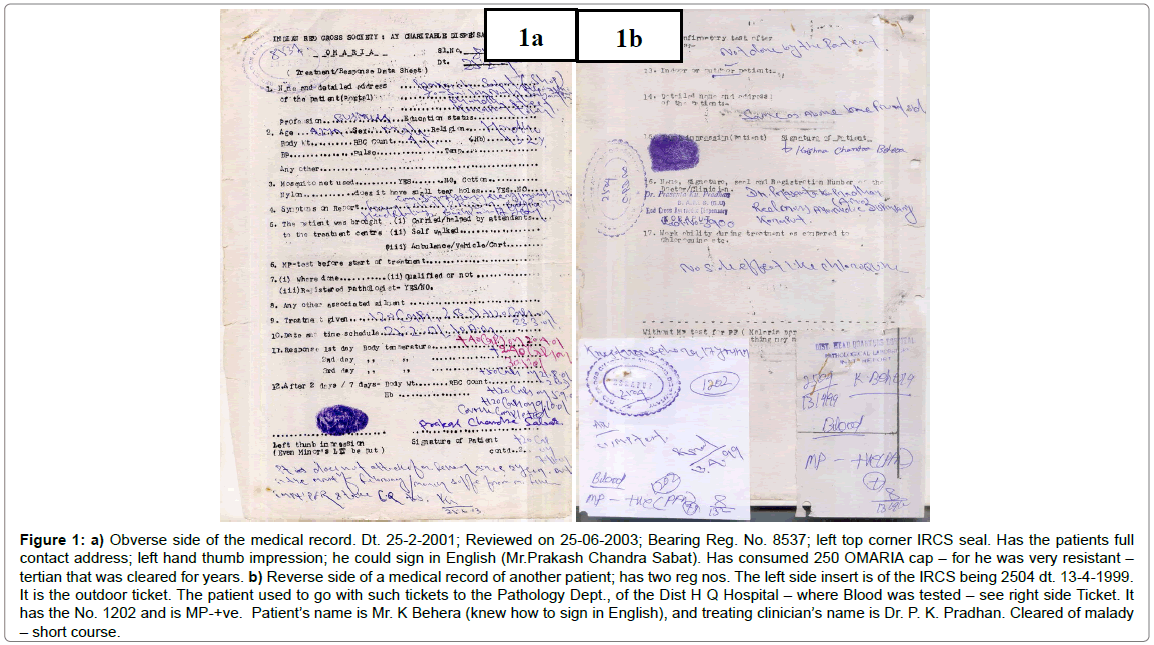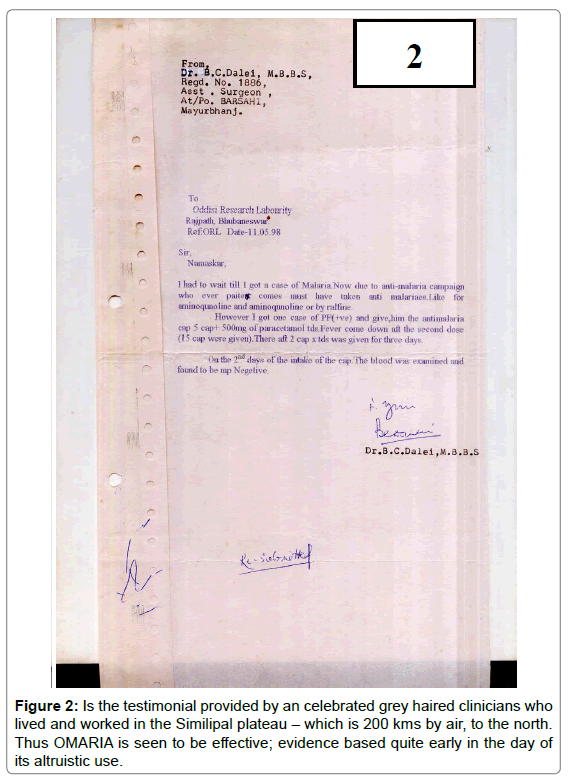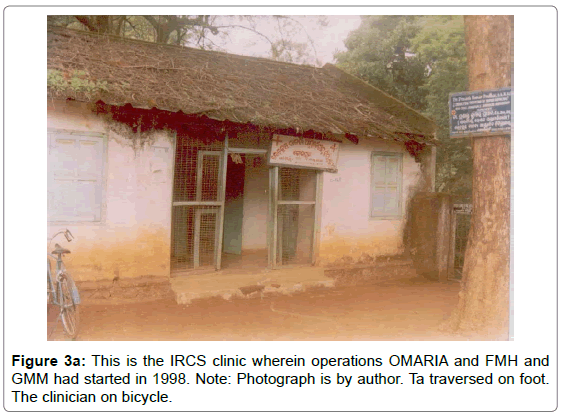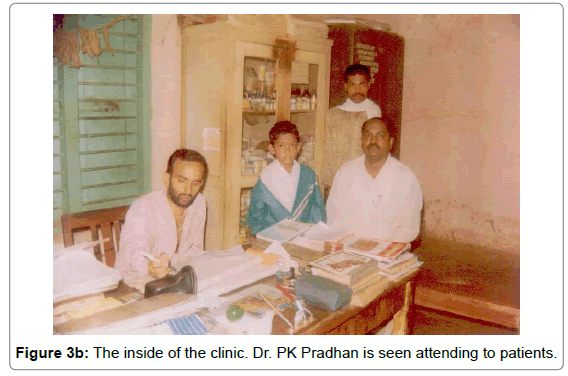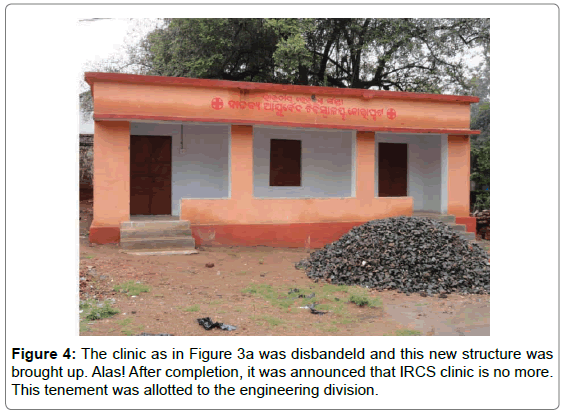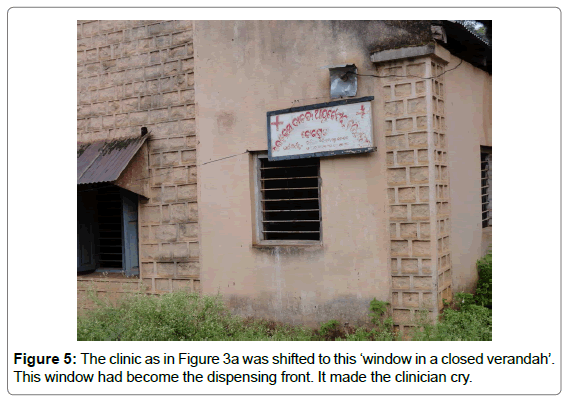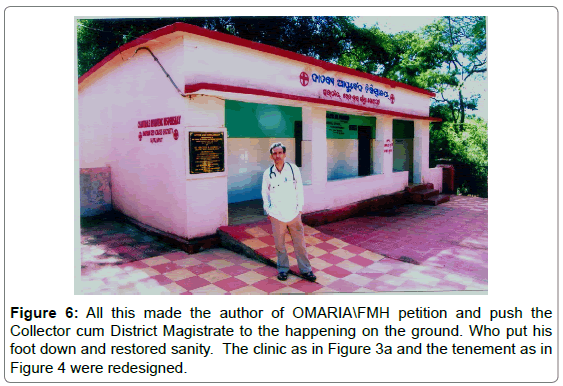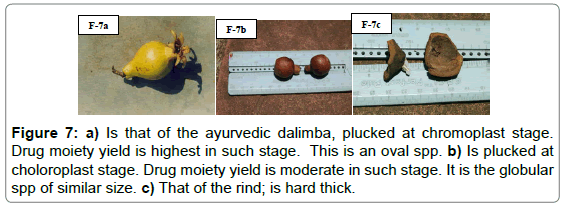Review Article Open Access
Fight Malaria at Home: Ghare Maro Malaria Social Service to Drug Discovery ��? Bottom Up Model: A Review
Deepak Bhattacharya*Sri Radha Krishna, Fight Malaria at Home, Kedar Gouri, Bhubaneswar, India
- *Corresponding Author:
- Deepak Bhattacharya
Sri Radha Krishna
Fight Malaria at Home, Kedar Gouri
Bhubaneswar 751002, India
Tel: 8895997259, 0674- 2430407
E-mail: oddisilab1@dataone.in
Received date: April 10, 2017; Accepted date: April 14, 2017; Published date: April 20, 2017
Citation: Bhattacharya D (2017) Fight Malaria at Home: Ghare Maro Malaria Social Service to Drug Discovery – Bottom Up Model: A Review. Air Water Borne Dis 6:135. doi: 10.4172/2167-7719.1000135
Copyright: © 2017 Bhattacharya D. This is an open-access article distributed under the terms of the Creative Commons Attribution License, which permits unrestricted use, distribution, and reproduction in any medium, provided the original author and source are credited.
Visit for more related articles at Air & Water Borne Diseases
Abstract
Alike elsewhere, India too has a few mini anti-malaria operations, one of which is called ‘Fight Malaria at Home’ (FMH) alias Ghare Maro Malaria GMH (vernacular). It uses an herbal cap., ‘OMARIA’-Orissa Malaria Research Indigenous Attempt’. Little is known about FMH-GMH or OMARIA, within India. Used in the Koraput plateau (core drug resistant hub of India) as an homemade- handmade panacea. It’s been in continuous use since 1998. Led to the finding that (i) India has a unique spp. of Punica Grantum (Ayurvedic Dalimba) not used medicinally elsewhere (ii) its dermis has elligitanins, ellagic acid with K+ nomer (iii) cures resistant malaria (iv) kills; clears parasites and gametocytes of all stages (v) safe (vi) resistance not indicated (vii) paradigm shift. The OMARIA story is about the social service and the humanitarian technology as outcome result and large scale sustained social service in the remote of the nature’s lap and joy thereof. Attainments and travails remain untold.
Keywords
OMARIA; Fight malaria at home; Drug discovery; Antimalaria; Humanitarian technology
Introduction
OMARIA (Orissa Malaria Research Indigenous Attempt) is a natural anti-malarial [1]. From inception till date (c.1997-2015) it was used in drug resistant core malaria endemic zone of India, that also has year round manifestation. It uses the fruit peel sourced Ellagitanins and Ellagic acid as the paired drug moieties. Historically and pan globally, this is first time use of such moiety pair. Therefore, OMARIA is novel. It is a non-chemo (CQ and ACTs are chemo), is physiologically compatible. It also adds efficacy to CQ, ACT and MDT. Thus, OMARIA also has complementary and supplementary roles. OMARIA is also very simple to make, very safe, broad spectrum, high efficacy, is versatile, holistic (numerous benefits), and good to use. The inspiration for ACTs was got from raw plant usage (as alike OMARIA). OMARIA merits critical attention, more due the nascent contrast and compare studies with ACTs [2].
OMARIA operation (since inception till date) has been an unorganized effort; non-donor driven; slow-flow; free (100%); privatepublic- NGO effort; with a missionary like zeal. It has resulted in ‘drug discovery’ (never before moieties). All this posits OMARIA as a unique ‘bottom up model’. On ground, it is preferred to all other chirals (orals; intra-muscular; parenteral included). It has attracted covert disdain disguised as overt disenchantment (supporting info). Moreover, OMARIA has resulted in ‘patient centric care’ in the remote of the rural. Furthermore, ‘OMARIA Story’ has NOT been told at-all. For these many reasons it is thought, that recounting the path traversed may be of profit to the all the stake holders in malaria domain and especially to the young and the enterprising.
Koraput is a district on the eastern shore board of India; is a plateau 750-1000 mts above the MSL, with a geographical area of 100,000 km2 and a census of 1million; 65-70% of which are non-migrating, native tribal of ethnic stock. Reports dated between 1965 and 1975 suggest that, most carriers were dormant or active. The approach to the upper region is salubrious, breath taking and enchanting. In 1997 this author (ta) was invited by the then collectorate of Koraput to help combat malaria [3]. The letters being signed by the Additional District Magistrate. The mind and spirit behind this type of invitation were Dr. PK. Pradhan (Indian Red Cross Charitable Clinic - IRCS) and the Secretary IRCS cum the Emergency Officer, Mr. BM Bhuyan (Orissa Administrative Service). They were quite passionate, focused and ensured that ta did not back out (when faced with ground reality). There was no passenger train (only goods that travelled haltingly and or sans any halt). Ta had accepted the call and had put self to task. Malaria was so rampant that even Judges; Additional District Magistrates; sub-collectors (at times all staff) used to come to office with fever and being drugged with CQ. Ta twice travelled in the guard’s vehicle and subsequently a bogie was attached that had wooden planks for berths/seats (no water; no lavatory).
There was only one microscope in the whole district. No microscopist was there (leave alone any Pathologist). On ta’s intervention a pathologist was deputed to the Dist. H.Q Hospital (old tin shed tenements). He used to be afflicted 24 × 7. He self-prescribed OMARIA and got the prophylactic effect. Thereon, the then Collector had instructed the then Chief District Medical Officer to pre-test all patients who came with observation based diagnosis of malaria and retest post OMARIA modality (per ta’s request). Such practice continued for at least 5 years (Figures 1a and 1b). OMARIA also got tested by allopaths in the deep of Mayurbhanj Biosphere another malaria resistant regions (Figure 2); apart elsewhere.
Figure 1: a) Obverse side of the medical record. Dt. 25-2-2001; Reviewed on 25-06-2003; Bearing Reg. No. 8537; left top corner IRCS seal. Has the patients full contact address; left hand thumb impression; he could sign in English (Mr.Prakash Chandra Sabat). Has consumed 250 OMARIA cap – for he was very resistant – tertian that was cleared for years. b) Reverse side of a medical record of another patient; has two reg nos. The left side insert is of the IRCS being 2504 dt. 13-4-1999. It is the outdoor ticket. The patient used to go with such tickets to the Pathology Dept., of the Dist H Q Hospital – where Blood was tested – see right side Ticket. It has the No. 1202 and is MP-+ve. Patient’s name is Mr. K Behera (knew how to sign in English), and treating clinician’s name is Dr. P. K. Pradhan. Cleared of malady – short course.
The efficacy of this FREE service was so good that the train ferrying ta would be stopped by villagers and they would conduct ‘pooja’ (traditional ritual) of this ta with flowers, lamp and incense. As bhog (eatable offerings, gifts) ta would be given casks of nuts, berries, tropical-wild fruits, whole jack fruits and even country brew (low alcohol content). They would hug and kiss ta – break into dance - would not let ta leave. The railway-men from the most menial/casual labourer to the station master would all make a bee line to wherever ta would be. Some of the station masters and many well educated people used to take OMARIA cap., once a day for periods ranging between 30 to 90 days. Drug resistant malaria and Brain malaria was so scary that it made the educated, the well-to-do and the non-tribe sub-populations indulge in Ghare Maro Malaria with OMARIA. No advertisement or propaganda was ever needed, nor any done.
There was no power in most part of Koraput. No telephone. No communication. Some settlements could only be accessed on foot with a kilometer trek. Vehicle fuel, bed net occupied more space than men and medicine put together. The perennial hill spring, fountains and the rivulet tributaries of river Jhanjabati (cymballing) provided pristine drinking and wash water, which was quite chilled for this warm-moist delta dweller. The out was the lavatory. Nights were so star lit (India night sky is splendid and romantic) that during moon less nights the ground could be seen by this born urbane (ta). With the avid interest and all out support from the Emergency and other Sections of the Koraput Collectorate ta had lunched (his) self-designed program “Ghare Maro Malaria – Fight Malaria at Home” – with OMARIA. Figures 3-6 gives the stages of the clinic during the period 1998-2014.
Dr. PK Pradhan and Mr. BM Bhuyan were the two engines that kept operation OMARIA in motion whence ta went to town to hand make OMARIA. The outcome results got reported worldwide. It was appreciated and supported with by the dist administration since inception. The clinician (Dr. PK Pradhan) was specially trained at MKCG Medical College. He served as the day-and-night one man resident clinician. By the year 2012 more than 20,000 cases were given OMARIA free at the above clinic (others add on). It was appreciated by the people on the ground. They embraced it. The choice best dream outcome was OMARIA a novel and versatile anti-malarial. It cured people and also prevented malaria transmission. It is very useful in status Brain Malaria. Rare, pan globally.
India is a choice-best lovely place to serve. In those times villains were few and far inbetween. Reliance ruled the psyche. There was no dearth of the divine and the altruistic. It mattered most. Post the Super Cyclone of 1999 [4], empty gelatin capsule shells were provided (CIFBBSR) FREE by Mr. Anil Khaitan, The Chairman of M/s Sunil Synchem Ltd. Alwar, Rajasthan. The Director, Indian Medicine (Mr. Pattnaik) had suo-motto visited ta in 05/1998 and had offered ‘Govt., Drug License and Certification’. While ta accepted the ‘permission’ he had desisted from availing any ‘commercial license’. In this regard, Dr. PK Mohanto (Govt. Chief Inspector of Drugs and Head of QC – Indian Medicine) played a sterling role in providing good support. Mr. BM Bhuyan stands tall as the most instrumental. He is a servant of the people par excellence for the administration by the govt. All the Collectors, Dist. Magistrates, Additional Dist. Magistrates and all the Superintendent of Police and their men and minions have supported it and importantly patronized this clinic (OMARIA usage availed- includes judicial). Among the researchers Prof. Enrica; Prof. Mario; Prof. Tarameli; Prof. Douki and their respective erudite teams (comprised of capable academicians) made scholarly inputs which made OMARIA stand apart. Many a names are missed due the long haul. To them, these presents, humbly, with Love and Regards.
Many people and organizations (with conflicting and or competing interests; technological and even commercial) had also tried best to get the OMARIA free operations shut down and or vilified (finally succeeded in 2015). The Administration had not yielded. Thus had continued unabated the operations of Ghare Maro Malaria with OMARIA. The afflicted and the needy have benefited in very large numbers. OMARIA clinical service extended upto Vishakhapatnam (AP). From medicine researching, making, to delivery, all at ta’s cost.
Lessons Learnt
(i) The homosapiens (homeotherm) appeared on earth some 2 million years, before present. The anopheline (poikilotherm) the blood meal dependant specific female vectors pre date the homeotherms by millions of years. The hemoprotozoa (plasmodium falciparum) is a Apicoplams (weed). And each of these components was here and is here. Therefore, malaria is part of the earthian ecology. Not going away. Malaria is here to stay. There is no need to fight ecology [5]. Hence, ta conceived to ‘fight malaria at home’; designed and developed the hand makeable OMARIA and coined the vernacular phrase ‘ghare maro malaria’ (ii) Malariasis is combated with (mild) chemotherapy. Even the ACTs are appended with toxic moieties that are cyto-toxic chemos. OMARIA is not a chemo. (iii) It has no toxicity index. (iv) By raising the dose volume to bolus intensity, the efficacy do not rise nor any side effect or contradictions appears. (v) All medicaments combat malariasis by attacking erythrocytes. OMARIA moieties debilitates the weed (apicoplasm) by acting on the plasmepsin via the Nfĸb route. OMARIA not erythrolyti (vi) combat is done with physiologically compatible compound – Ellagitanins and Ellagic acid (vii) Malaria pathology has a gut phase and a blood phase. OMARIA is hepatogenic on one hand and on the other is sporocidal and equally effective during the blood stages of such hemoprotozoa. (viii) OMARIA has no clinically adverse effect on hemodynamics, pulmonary or on the cardio-thoracic parynchema. And whereas, all conventional medicaments have such contradictions (ix) These apart, OMARIA clinically also indicates to be (a) hematinic (b) anti-viral (c) bacteriostatic (d) non-xenobiotic (x) OMARIA is very compatible and synergistic with the entire range of the conventional pharmacology.
The (rail) route from Rayagada to Koraput was romantic (rainy season specially). Ta loved and preferred it. Ta also found that the Koraput plateau was tribal land. And, the tribal loved to sing and dance through the moon lit nights, to rhythmic beats, in lateral groups (alike the Gurkhas). On nuptial occasions, it was almost 24 × 7, ranging for a week. Ever ready with disarming-warm smiles, they were completely in sync with Mother Nature, in hunting-gathering stage of the civilisation. Cash was scarce. Barter, the most. Around c. 2002 the question arose in the mind of ta ‘how did the tribal survive the millennia(s)? It was found that on being afflicted they chew alkaloid loaded leafs and Nyctanthes Arbortritis Linn was the most common. Promptly ta included dried leaf powder @10-20%. Subsequently ta learnt that alkaloid yield was higher if shade dried, while sun drying becaused depletion due ethylation (personal communication Mr. Murty, CCRAS). A year of clinical co-relationing taught ta that Nyctanthes was erythrolytic (in-spite of having a weak moiety as a miniscule fraction). It was non plasmocidal (ellagitanins and ellagic acid are plasmocidal). Nyctanthes was only affording management by cracking the stressed OM of the parasitized RBCs. Bolus is followed by transient anemia and even anisocytosis (bad for sickle cell person). This, delays parcitisation, thereby widening the inter-spasm window and lowering the intensity of the defervescence (hot-cold-sweat cycle’s intensity is directly proportional to parasitized RBC count and not to the gross circulating cum hibernating\dormant parasites).
To enhance further clearance the tribal practiced binge drinking (a sort of a family practice – often orchestrated by tribal sprit ritual cum medicine men. By and by ta established as to how and why alcohol down regulates parasitemia of all forms and types (hemo and lymph). Nyctanthes was taken off OMARIA. Concurrent use of Paracetamol (4-Acetamedophenol) was introduced. Nyctanthes has greater therapeutic effect against Pv spp. In 2014 nyctanthes was reintroduced as a select RBC - OM cracker by ta in the Lmass production version called EAK (effective anti-malaria kingpin). It has improved the therapeutics and its spectrum.
Surprise inspection of the hutments (2000 -2005) indicated that OMARIA was being hidden (full course was not being taken). The tribal man knew that these city dwellers would not be available at crunch hour, thus they rationed usage and stored by hiding. Ta learnt that even partial dosing was therapeutic. OMARIA moieties do not need bolus or long period \ indefinite ingestion. OMARIA was evolving as a unique internal medicine (form food).
Cut off conditions and salubrious hill-dale weather facilitated long hours of interactions. Ta chanced upon the information that the tribal man was preferring OMARIA for almost any and every ailment (perceived and actual; fracture included). The most common cause of such self-medication was myalgia. Now, malariasis and viriemia are associated with Na+ depletion and acute myalgia. And, OMARIA seemed to down turn myalgia. Addition of Paracetamol precipitously cuts off mylagia resulting in the saving of OMARIA (which was promptly stored by hiding). Myalgia and pyrexia waned, palor, listlessness and fatigue remained. Ta knew 4-Acetamedophenol depletes Na+ from the circulation. Ta concluded that OMARIA was anti-inflammatory. Thus introduced (research grade) NaCl and KCL @ 10% and 5 %, respectively. Recovery schedules shortened precipitously.
Malaria patients are promptly put on physiological saline infusion via the gravity route. Edema of the limb and hematoma at cannula sites are caused in most cases as the system refuses in-take (due hemodynamics failure). OMARIA with oral route of salt seemed to skirt this baffle. Ta author correlated that a gut-to-periphery route is established and hence salt is swiftly and efficiently up-taken. In status severe malariasis parasite count is often low in the termities (peripheral blood smear). Whereas, in the central circulation the count were higher. Thence, injected medicines even via the intra-muscular route do not reach the larger body of the parasites (remains locked around the cannula site; cause of edema and hematoma). Thus, oral route (OMARIA) worked better. The supine and the near morbid patient ask for such potable salted OMARIA. Such asking portends systemic uptake with a taste (smacking lips and eye movement). In the remote of the wild it sounded the death knell of the affliction. Missionary nurses peddled such user concepts of OMARIA. It was taken home and morphosed as ‘Fight Malaria at Home”. Nothing happened overnight, nor single handed.
All this made ta look intently at blood slides (malaria and nonmalaria). Slowly it emerged that there was a perceptible difference between the architecture of the lymphocytes of a healthy playful child of 2yrs (anabolic) and that of a healthy non complaining geriatric (catabolic). The architecture in the case of a geriatric appeared tentacular, inflamed and non crenated outline. Ta interpreted it as old age related ever present ‘systemic inflammation’. In other words, inflammation status of the Lymphocytes could be visually inspected via the field microscope in day light (energy less clinics). Ta finally proved that malaria is indeed associated with such visible inflammation which precipitously wanes post OMARIA modality i.e., crenated architecture returns [6]. Thus the anti-inflammatory effect of OMARIA (and or any other therapy) in human in-vivo could be evidenced. In the case of ACTs the return of the architecture is significantly late as compared to OMARIA.
Goitre is a medical phenomena of the farms and the barns (plains and delta geomorphology). The tribal suffer goiter least (hill people - human geography). During 2000-2005 the altruistic Govt. of India was intently peddling the iodised salt (this destroyed the local and regional salt industry and employment). Brain malaria cases abounded in the District H Q hospitals and in the missionary clinics. Tracing back the families and sustained friendly talk indicated (disguised interrogation and statistical methods) that the patients who all were taking the Govt., supplied iodised salt were the ones who reported complication and or mortality. Ta announced the same to the local administration and introduced burnt salt (Sachala) or salt from the back of the Cuttle fish (Samudra luna). To assure QC ta designed and put into practice a method of burning (700-9000C) the salt duo separately in mud sealed earthen containers in the hearth of the village iron smith’s place. Ta termed such burnt salt combination (NaCl and KCL) as ‘mono and divalent cationed OMARIA’. Sounded sophisticated. Vilifiers stood fobbed (temporarily). At clinical level this spelt never before like efficacy. The most significant outcome result was the swift return of the failed hemodynamics thereby re-enabling the gravity route of physiological saline infusion. It was followed by return of the body temp; perspiration; wane of pulmonary distress. Supine patients within 4-7 hrs (of ingestion) got up and walked away. Hill tribes are tough people. Iodine is cholinergic. Iodine ushers grave prognosis (even for the resistant tribal hill male).
The Christian missionary nurses were the 1st to bring the following observation to the notice of Dr. P.K. Pradhan. A large number of OMARIA ingested patients, specially the able body and the well-built, male and female (as compared to other therapies) turned over sans any agitrans or uncontrolled throw of the lower limbs and announced ‘hunger and thirst’ – during the initial 12 hrs of OMARIA ingestion which is not possible in deep status malariasis. What did this signal? Around 2009-2010 it was evidenced that the medicine moieties were triggering the Urolithin pathway in the gut [7]. OMARIA moieties are thus gut friendly and completely reverse the peristalsis problems (nausea also) that are associated with untreated malariasis. With CQ and ACT (group) treated cases there is an associated gastritis, epigastric flatulence of a stiff order and loose motion\unformed\nonbulked stool. All these were well addressed with OMARIA. The new food based approach seemed holistic.
Malariasis is a‘response pathology’. Inflammation is systemic and spiraling. All this is becaused by the Hemozoin which keeps ever accumulating. It is stable and toxic lipid rich ferriprotoporphyrin IX, crystal. It is created due digestion of hemoglobin by the parasite. It triggers expression of IL-b, TnF-a, MMP-9, etc., inflammatory cytokines across numerous organs and also expresses oxidative stress causing free radicals, which is also triggered by all alkaloid group of anti-malarials (ACTs and CQ). It is the cause of vascular transvasation – brain malaria – complications\ refractile stage - hemodynamics failure - K+ depletion – neuro muscular morbidity - no return (a cascade). Post c.2003 ta started noting that (interestingly) not even a single case treated with OMARIA every gravitated to status brain malaria or required higher referral. Therefore, OMARIA may have a very special action on such hemozoin is what ta thought aloud and shared with erudite malariologists apart here, there and everywhere. Everybody felt good. Non in India joined. Many technocrats in the Union Govt., opposed. Occidental experts took it up [7]. Beating own drum was cadence less, difficult, painful and unsustainable.
Polygamy and polyandry is not an issue of contention with isolated societies of the tribes. Joint family is the hall mark even numbering up to 50 individuals. Ladies are scantily dressed. Being feted around as a (deemed) Demi-God, being on and often present facilitated ingression into personal life styles. It was not taken as an offence. Persistent observation got easier. Gradually, ta observed that status menarch was not conducive to tertian malariasis (inspite of anabol). Tertian types are all labeled as ‘pali jwara’ (roster alias tertian fever). Low agitrans and less chill being a marked component of pali jwara. This type was rampant among the menopause. Isolating the menopous-tertain group resulted in a decrease of the incidence among the juveniles. The geriatric menopause seemed to act as the reservoir for the refractile and the killer types of the malaria strains (and status brain malaria) i.e., suggestive of mutation. This group needed OMARIA modality for a month (1 cap daily) to move out of the pali jwara syndrome. Smear tests indicated mixed (pf + pv) with predominance of pv spp. Ta concluded, lack of hormones slackened parasitemia. Anabolic therapy spells grave prognosis.
Affliction from such geriatric sources by the non-tribal anabolic stage youth translates in severe malariasis, often with (intractable) complications. On the other hand, pali jwara persists over years, with wasting syndrome sans mortality or gravitation to refractile status. Every cycle of wasting heightens the baffles for any full-fledged outburst of parasitemia. Clinically, malaria progresses sumararily. Pathologically, malaria progresses exponentially (thus it is a swift killer if left unmedicated). Pali jwara (however) is ‘self-limiting’ even if not medicated and hence is a unique syndrome; 2007. Binge drinking and or use of adulterated liquor (with MeOH) thwart proliferation. The plasmodium is a very susceptible life type. Pure artimisinin has a blood life of only 6 hrs. Whereas, alcohol ketones have much longer life. Therefore binge drinking (non methanol) is beneficial is what the tribal societies have averred historically. In order to avoid the deleterious effect of the alcohol keton the defense mechanism of the body the parasite seeks the gamp of the mature RBC. The RBC’s double concave flexible architecture offers least cohesive thrust at its mid. Moreover, the body’s defense mechanism is least oriented towards its own RBC. This facilitates cohousing. Paracitisation is a naturally preferred phenomenon. GMM\ FMH does not attack the RBCs.
Weeds (continuously) digest any substance in nano-milligram quantities (even metals and toxins). Overdose kills. They grow on any surface and place. The plasmodium is a weed (apicoplasm). Hence, it can withstand methyl\ethyle alcohol in controlled doses and not loading\ bolus doses. Post loading doses long before alcohol can because any hemolysis, the embedded protozoa is adversely affected, severely. Such anecdotal corelationing sent many a health-worker to experience the effect (resulted in pathological investigation; wounding up as evidence based findings). The hydrogen ion component of OMARIA is high i.e., acidic This may be a cause of OMARIA being a non-toxic weedicide; systemic?
Making OMARIA (Humanitarian)
Juveniles are playful, like the out and the freedom. Abhor confinement and more the bed nets (especially if they be medicated), as much as CQ. Thus, infestation was ever present. Prophylaxis was the call. 1 cap OMARIA /day for 5-7 consecutive days of every month per head was allocated. Incidence waned to zero levels. Clinically, the child had no malaria symptoms. Yet, microscopically the parasite was present. On being shifted to ‘zero malaria’ zone his body did not act as the reservoir for transmission. Sub-clinical OMARIA was making the parasite non-pathogenic. It was not clearing though. Conventional therapies are not reported for any such type of phenomena\efficacy (with 100% non-toxicity).
During the same time ta noted that persons having only malaria i.e., neat infestation presented a clear-crimson tongue. And whereas, patients having any other concurrent infection and or infestation present with buffy coats. Poly infestations and infections (or mixed) cases abound [8]. The case of typhosa + malaria have the most prominent and uniformly dense buffy coat (P.K.Pradhan). At presentation malaria symptoms are writ large. Clearance using only anti-malarials (no antibiotics) typhoid leaps to the fore with acute manifestation and complicates as like brain malaria and logically is miss-interpreted as ‘brain malaria’. The number in the brain malaria column rises in the register, albeit erroneous. Authorities lie in quandary.
Tropical conditions also herald a world of varied entomology. Ticks are difficult to discern and be distanced with. Bare body life style facilitates bites. The symptoms thereof are somewhat alike malaria. When conjuncted with seasonal virus (CMVs included) the symptoms come closer. Villagers would ingest OMARIA and report ‘good riddance’. This opened ta’s mind to the possibility of OMARIA moiety also having anti-viral property, early in the day. Ta again went talking about all this. Indeed, punica moieties are broad spectrum, versatile and potent as anti-viral. 1st time find (supporting information).
Decades of prayer and pleadings to the apex hyper payed technocrats of the Govt., of India to adopt and or to take OMARIA on board and or join in some way or form were met with ignominy, ‘stare downs’ and scuttling. Bureaucrats said ‘yes’. Technocracts, torpedoed. Even central African technocrats conducted one study [9]. India remains the choicebest lovely place to serve. OMARIA and Ghare maro malaria \ Fight Malaria at Home beckons the research community.
History of the Formulation
The Indian sub-continent has a unique species of the Punica Granatum (Figures 7a-7c). It is year round fruiting, compact, hard and mini in size. It is very harsh and has no food and or juice value. The Indian School of Medicine (native-indigenous) has for centuries before present been using this fruit as a constituent (normally as a minor) in numerous therapies - formulations of poly constituents. It has not been used for fever and or anything alike pyrexia. Thus punica is a historically vetted constituent. Ta was simply the blessed one.
Ta during survey tours had chanced upon the property of such Dalimba (punica) in down regulating defervescence (hot-cold-sweatcycle). It was like matchstick to gun powder. No villager or someone, nor any text provided such input. It was sole self-experienced (validated overtime – nothing happened overnight). At inception (1997-98) only the sundried, stone hard dermis of this medicinal fruit was used as OMARIA. It was ground and hand filled into gelatin capsule shells @750 mg. This amount was brought down to 500mg with gain in powderisation and cap filling experience.
Discussion
Ghare maro malaria – ‘Fight Malaria at Home‘ Gmm-Fmh was never a drug or any camouflaged form of clinical trials. OMARIA was sent to the Collector cum District Magistrate’s Office. It is then sent to The Secretary, Indian Red Cross Society (dist Branch), who in turn sent it to the free/charitable clinic. OMARIA was never a medicine. It was neither a commercial product nor a commercial service. At inception it was food based semi-supplement for patient centric care. That too only an ‘attempt’. By and by, dermis punica (Ayurvedic Dalim) turned to be bestowed with unique moieties (Mother Nature’s gift) which all jointly and severely now (2 decades after) posits as a sources and candidates for novel drugs. This, primarily because men of metal and persons of letters exhibited indulgence for OMARIA. Its unique moieties are synergic, non-confounding and non-confabulating. Although 2 decades have lapsed since OMARIA has been in continuous use that too in mono station it thus far has not indicated any development of resistance. Furthermore, the ellagitanins as in the ayurvedic dalimba’s rind has K+ as an anomer (extremely useful in thwarting onset of neuro-muscular morbidity). It also helps yeomanly in (thwarting and down turning) sepsis like situations and in hypophsophatemia - 2004. Interestingly, hypophsophatemia is associated with (reversible) complication. Ta talked about such phenomena for decades; no takers; blab bundled off. Brain malaria is also well known for complications which all are reversible. Therefore, OMARIA’s role in this regard remains to be investigated. This aspect too was mother nature’s gift (urn with a handle). Reported here for the first time, all this suited the clinical and pathological objectives. Ta thereafter looked around for years for any better alternative and found non, till date. Doggedly perused, OMARIA became a sort of a concept. Hopefully, someday the world shall come to know about this primary work of good attainment and Figure 3 as the work shop such effort. Malaria alike virus is innately associated with air and water. As the earthlings march into urbane conditions (with population boom), more and more number of stagnant water bodies will be required, with which malaria shall creep in towards such never before places.
Future Aspects
Vis-à-vis malaria, the nearest to the ayurvedic dalimba’s rind is the carp of the tropical deciduous seasonal fruit Kendu (Diospyros Melanoxylon). It indicates anti-malaria; anti- viral efficacy and is a potent anti-mitosis (highly synergistic with chemotherapy). Ta uses it also in Cancer and in Tumours (again 1st time report). It too is ta’s find.
Gmm – Fmh posits as humanitarian effort and acts. OMARIA posits as humanitarian technology - as it can be hand made at home with kitchen garden\orchard produces. It can be replicated in the all rural-remote conditions. It does not require power, cold chain and or any enabled technical man power, nor capital investment. It visualizes malaria as part of ecology and provides sustainable technology that is in sync with nature and does not (trigger) elicit any counter response from Mother Nature or from the host’s natural physiological processes. It has Gandhian ethos at heart.
OMARIA story herein as a mini-review is told for the first time. A few interesting (late developments) could not be included. The author reconfirms and re-states that Punica grantum’s dermis has not and never been used in any civilisational and or historical and or cultural medicine(s) – pre to OMARIA – this includes Ayurveda and the Sino schools of medicines. Similarly, Ellagic acid and or Ellagi tannins have not been used either even by modern pharmacology. Yet these two compounds combine well. They can be used as modern chiral.
Acknowledgement
To the Indian Red Cross Society; Dr. P.K. Pradhan; Mr. B M Bhuyan (star facilitator); The Collectors and the Additional District Magistrates; To the Nurses of the missionaries; To the Emergency sections; the drivers and the helpers of Red Cross namely Mr. Naresh.
References
- Bhattacharya J (2015) A new natural anti-malaria source India: Brief communication. J Trop Dis 4: 187.
- Bhattacharya D (2016) Indian monsoon climate and malaria: Medical meteorology. Malaria Contr Elimination 5:141.
- Bhattacharya D (2012) Relevance of economic field microscope in remote rural regions for concurrent observation of malaria & inflammation. Adv Inf Dis 2: 13-18.
- Dell'Agli M, Galli GV, Bulgari M, Basilico N, Romeo S (2010) Ellagitannins of the fruit rind of pomegranate (Punica granatum) antagonize in vitro the host inflammatory response mechanisms involved in the onset of malaria. Malar J 9: 208-217.
- Bhattacharya D, Pradhan PK (2016) Tongue is the face of the malady? Differentiating in desolate distance: Locus -tropical field India. J Trop Dis 4: 211.
- Lekana-Douki JB, Bhattacharya D, Zatra R, Toure-Ndouo FS (2012) Indian anti-malaria OMARIA is effective against african drug resistant P. falciparum field isolates and laboratory strains; without toxicity. Int J Clin Med 3: 1-8.
- Deepak B (2017) Large volume holding of water at surface is potent anti-dote to pollution and health hazards. Air Water Borne Dis 6: 134.
- Read Bernard E (1936) Chinese medical plants from the Pen Ts’ao Kang Mu, 3rd Eds Chinese medicine series, Taipei, Southern Materials Centre.
- No Authors Listed (2011) Fight malaria at home: Therapeutic & prophylaxis clinical data. Asian Pacific Journal of Tropical Disease 1: 142-149.
Relevant Topics
Recommended Journals
Article Tools
Article Usage
- Total views: 2647
- [From(publication date):
March-2017 - Apr 02, 2025] - Breakdown by view type
- HTML page views : 1874
- PDF downloads : 773

